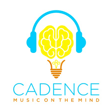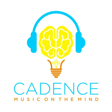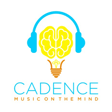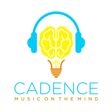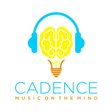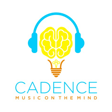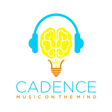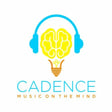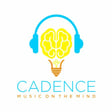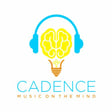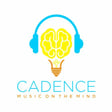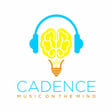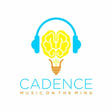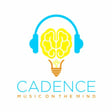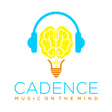Become a Creator today!Start creating today - Share your story with the world!
Start for free
00:00:00
00:00:01

S02 Episode 05: Music in the Most Extreme Situations
This episode was partly taped live during Indre’s faculty artist recital at the San Francisco Conservatory of Music. It explores how music can be used to comfort, heal, and reduce conflict under the most extreme circumstances. But it’s also not always welcome.
Transcript
Introduction to Alarm and Podcast
00:00:00
Speaker
The alarm that you heard, it's called the Tseva Adon, which is the title of the piece. It means color red. And that's code red in Israel. That means the Avake is coming. And you have to get to a bomb shelter. And also during Holocaust Memorial Day in Israel, they also played this alarm.
00:00:23
Speaker
And on that day, everybody in Israel stands still. And even if you're on the freeway or wherever you may be, everybody stands still and it's very chilling. Everybody just stands there for a minute. And then to hear this alarm again when we're under fire.
00:00:50
Speaker
Welcome back to Cadence, the podcast where we explore what music can tell us about the mind. I'm Indre Viscontis. We've been exploring this season how music can be used as medicine, and one way in which music is used almost universally across cultures is during rituals or ceremonies in which we seek to comfort ourselves or others.
00:01:22
Speaker
I wanted to learn a bit more about how music was used in extreme situations, times when human suffering was at its peak, and when comfort was really important.
Music in Dire Situations
00:01:33
Speaker
These times inevitably involve some kind of conflict, and I wondered if music can not only comfort but also play a role in conflict resolution. After all, one of the things that we can measure in the brain is the level of oxytocin, often called the love hormone because of its role in social bonding. As it turns out, when we play or listen to music that moves us, we have higher levels of oxytocin in our brains. That might be why music is so good at bringing people together.
00:02:01
Speaker
But oxytocin is not just about love. It's also, in some ways, about hate, because higher levels of oxytocin can also lead us to feel more aggressively towards people that we consider our enemies, the out-group. And music can serve both to connect people and to alienate them.
Music During the Holocaust Discussion
00:02:19
Speaker
So in this episode, we're going to hear from Jewish music scholar Francesco Spagnolo, who will tell us a bit about music during one of the darkest times in human history, the Holocaust.
00:02:30
Speaker
We'll also hear from Be'erri Mualim, a composer whose time in Israel greatly influences his work. Finally, we'll talk to Micah Hendler, who uses music to break down the boundaries between Israeli and Palestinian youths in Jerusalem. Much of this episode was taped in February as part of my faculty artist recital at the San Francisco Conservatory of Music, so it's a bit different from our other episodes and includes music performed live at the event.
00:02:58
Speaker
We started the concert with a piece by Osvaldo Golihov, an Argentinian composer whose music I adore. The piece is written for soprano and string quartet, and I was joined by the Kinneret Quartet, with Daniel Cher and Claudia Bloom on violin, Be'erri Mo'alem on viola, and Thomas Schubatham on cello.
00:03:16
Speaker
The piece is in Gallego, and it's set to poetry by Rosalia da Castro. In the composer's own words, the musical setting is a constellation of clearly defined symbols that affirm contradictory things at the same time, becoming, in the end, a suspended question mark.
00:03:34
Speaker
which I felt was especially appropriate given the context of what we were about to discuss. In the poem, a woman describes her deep sadness and asks the pale moon to take her to death's dark mansion.
00:03:48
Speaker
But then she adds a caveat, that she wants to be obliterated, so that she is not remembered, neither here nor in the heavens above. Now that is true despair. If you prefer to skip it, it's about five minutes long. Here's Lua d'Escolarida by Osvaldo Golov, performed by me and the Kineret Quartet.
00:05:26
Speaker
Oh, oh, oh, oh, oh.
00:05:51
Speaker
O, O, O,
00:06:15
Speaker
Oh. Oh. Oh.
00:06:49
Speaker
In the name of the Lord, amen.
00:07:16
Speaker
Let me be the only one.
00:07:48
Speaker
Oh.
00:08:18
Speaker
I'm not alone, I'm not alone, I'm not alone, I'm not alone.
00:09:01
Speaker
Oh.
Impact of the Holocaust on Jewish Music
00:10:01
Speaker
So to get a deeper understanding of how music was used in different ways during the Holocaust, I sat down with Jewish music scholar and Berkeley professor Francesco Spagnolo. In terms of what the impact of the Holocaust broadly defines on what we call Jewish music,
00:10:18
Speaker
What we're talking about is a series of disappearances and dislocations of communities, of places of performance, of musical instruments and musical books. And also we have to think about a global impact of this event. When I say communities, I mean communities and individuals, both composers, performers, culture bearers and audiences that were wiped out. So we have to think about sort of like a musical world that in the span of
00:10:48
Speaker
We'll talk later about how many years kind of vanishes, disappears. And we're talking about places of performances like synagogues and theaters, cafes, streets, and also private homes that were really cradles of a lot of musical culture that are also equally wiped out over the years. Year after year, month after month,
00:11:09
Speaker
week after week on a daily basis, right, over the course of the Holocaust. This had a global impact. We tend to think about the Holocaust and Central and Eastern Europe, but actually we have to think about Eastern, West Europe, but also Southern Europe, Italy, Greece are equally impacted and greatly, and of course North Africa and the Middle East. So it's really a global
00:11:32
Speaker
reach that this type of history has. And in terms of musical repertoires, we have to think about synagogue repertoires, equally global Ashkenazi, Sephardic, Yiddish song, Judeo-Spanish song, Judeo-Arabic song, Judeo-Greek, Judeo-Italian, and so on. A lot of traditional repertoires that are destroyed with the communities themselves. We're sort of doing fieldwork in a past that was erased, so we have to rely on fragments to reconstruct history.
00:12:01
Speaker
Now before we get to the effects of the Holocaust, I know that there is some controversy with respect to when it actually began. So from the perspective of music, when do we think music was first affected? I think in a way the Holocaust, musically speaking, begins with the anti-Jewish laws.
00:12:18
Speaker
that very soon after the Nazi Party took over in Germany, so in April of 1933, were passed, and that actively retired, essentially dismissed, all kinds of public servants, among them were throngs of musicians.
00:12:35
Speaker
who were working in state orchestras, opera theaters, and who were employed by the state. And so this was a law that targeted specifically Jews and, or as it said, non-areans and political opponents. So if anybody who was a musician was classified in those ways, they were let go.
00:12:56
Speaker
They had to take an early retirement and they ended up without work. And there was a huge gap in German history, musical history, due to this. And we know many stories around the Berlin Philharmonic and other, but countless orchestras and so on. And so we see this paradigm expanding from Germany across Europe
00:13:19
Speaker
of letting go of Jewish musicians. And in a way, one can say that in art music, so we're not talking about just Jewish music, we're talking about a loss. Think about if a segment of the music population of North America was wiped out within a few days, what would happen to
00:13:39
Speaker
to our lives, right? So art music in a way is the first, chronologically speaking, the first casualty, the first victim of the Holocaust. But of course, once the labor camps and ghettos were established, music was used there as well.
Music in Nazi Propaganda and Camps
00:13:57
Speaker
There is the whole phenomenon of the tension and concentration camps and ghettos and labor camps where life was extremely hard but allowed for, or sometimes like in the case of Theresienstadt, in which musical creativity was fostered for very specific and twisted designs on the part of the Nazi authorities, like in Theresienstadt, essentially, to show a model ghetto where music and culture and cabaret were performed, and there were strategies of resistance there in terms of
00:14:27
Speaker
carrying out a message in spite of very obsessive and pervasive control. You know, we have different ghettos and different case studies for each one of them. So in Theresin we have mostly composers from Prague who happened to be Jewish and were confined within this, you know, nearby. It was a fortress that became a concentration camp.
00:14:52
Speaker
And there was musical life that was fostered by the authorities, so they got to perform their work. There are some of these works that have become since, after World War II, part of the global musical repertoires like the opera Brundibar. So we're talking about Hans Krascha, Victor Ullman, composers who were established before the war and who
00:15:13
Speaker
before being murdered were able to have their work performed in these sort of twisted kind of contexts. But we have other examples. For example, in Krakow we have the work of Mordre or Mordechai Gebertig who was a kind of a Yiddish ministrel who sang pretty much in the street and performed his work and was murdered and was shot in the street by an SS.
00:15:41
Speaker
similar kind of work and actually very important to us was in the ghetto of Lodz, Lodz. This is important because there were many layers of musical creativity there and they've been researched by an Israeli musicologist who herself the daughter of Lodz ghetto survivors who interviewed the network of survivors around the world. So basically she traveled the world
00:16:03
Speaker
to interview survivors about what they remembered of their musical repertoires. And also one of the musicians survived and moved to Italy for some time after World War II, and there she spent some years reconstructing her memory of what she had composed and could not write down. And then there's music in the most extreme of circumstances, in the death camps.
00:16:29
Speaker
So extermination camps were established beginning in 1941. We're talking about five locations with each one of them very different from the other. There were veritable killing factories where people were just shipped to and murdered on the spot within a few minutes or hours and where there was no musical life. There was no life, essentially.
00:16:49
Speaker
or places that were wider, more organized, like Birkenau, where there were different, there were orchestras, there were all kinds of musical activities, both to, you know, what's the most famous is music to accompany the march of inmates in and out of camps for labor, but also to entertain the SS who were ruling over the camp.
00:17:14
Speaker
And so there are two very important differences and it's good to be discriminating about them. Just a couple of somewhat personal experiences having grown up with survivors and knowing still many of them, but two very different memories that I collected both from Birkenau. One, a very dear friend who lives in New York City now,
00:17:42
Speaker
who was telling me about how in the women's block that she was in, there were singers at night after a full day of hard labor who would sing. And she said to me, you know, we, meaning she and her inner very small group of connections within the block said, we hated those evening singers because they reminded us of the times that were when we were free. And so listening to that music was really painful.
00:18:11
Speaker
Even though the music itself was sung, like the songs were sung to be liberating after a hard day, etc. But the experience was the opposite. The other is a very moving testimony by a French survivor, Fred Sedel,
00:18:26
Speaker
who witnessed the evacuation of the Roma camp. So all the adults, this was in April 1944, all the adults were shipped off into the gas chambers and the children were left behind.
00:18:44
Speaker
not just the parents, but the elders as they were trucked away, sang to the children. So in that case, the use of a voice as a way to kind of share a last-minute comfort with harmless children, knowing very well what awaited
Post-Holocaust Silence and Testimonies
00:19:04
Speaker
them.
00:19:04
Speaker
So we find all kinds of cases and all kinds of permutations, and it's really hard to establish any rule. It would be nice to know that music can save and can make people feel good, but it's not always like that, right? So in a way, the memory, the musical memory of the Holocaust begins with the Holocaust and shortly after that.
00:19:25
Speaker
And then it's followed by actually something that, sound-wise, it's as important as music, which is silence. For decades, most survivors kept silent for one reason or another because of personal shame, because of the fact that nobody wanted to hear their stories for different reasons, either because if they were in Europe, countries were being rebuilt,
00:19:50
Speaker
If they were in Palestine, the State of Israel was about to be established, there were wars to be fought, and they were also representing the memory of victims rather than of winners, and the State of Israel needed strong winners to establish itself.
00:20:07
Speaker
or simply they were swamped by the noise of victory of World War II. So survivors kept silent. So we have a long period of silence, which is equally important in sonic terms, if not specifically in musical ones. And then that's followed, I would say maybe 1970s, even more important in 1980s, but what has been called by French historians, the era of the witness.
00:20:35
Speaker
All of a sudden testimonies became crucial. There is something to be said about that. Can history only be written through the words of firsthand witnesses or not? And so through that we have a lot more information.
00:20:52
Speaker
and we have a way to reconstruct what the past might have been like. But also we're opening up the door, as I was saying earlier, to a plethora of political uses of memory and of music as part of memory. Given the depth of this conversation and the emotions therein, it was time to take a musical break. I asked Barry Mollum and the Kinneret Quartet to return to the stage to perform two pieces that he had written.
00:21:21
Speaker
So let's talk about the first piece. We talked with Francesco about the dislocation and the loss, not only of people, which of course is more important, but also of music.
Resurgence of Jewish Music Traditions
00:21:35
Speaker
And in this first piece, you bring back some music that we thought was lost. So tell us a little bit about the Hasidic sect and what was known about what happened.
00:21:46
Speaker
So the Breslev Hasidim, there were a lot of them before the war, I think after the war only a handful survived like 70 or something and almost all forgotten and then through the power of the teachings and their songs and I don't know how but
00:22:06
Speaker
Their philosophy has made a resurgence. This specific sect of Hasidim, they're all about music and joy and finding the good in people. One of the teachings is always have a melody to carry along with you, to just to hum to yourself.
00:22:32
Speaker
And we know that the Rebbe, the guy who originated, Rabbi Nachman, he has some teachings about people as music notes, because he has a thing where you find a good dot in everybody, in the Kudat Tovah in Hebrew, the good point. And then he makes an analogy, I was like,
00:22:55
Speaker
when you find, in music, in sheet music, when you have dots on the page, and how kind of piecing those dots together makes a melody, so likewise when you find the good in the people, and you can make like a melody, a community, and it's just an example of some of the things that were lost in there, and I visited in Ukraine the pilgrimage site of its grave, and
00:23:24
Speaker
It's now every Rosh Hashanah, the Jewish New Year, there's thousands of people that go there, like 30,000 they say. And they take over this town and they overwhelm all the infrastructure and it's a big chaos. But there I heard about this melody that was found in Ukraine and that they
00:23:44
Speaker
They say that it was by the rabbi himself. So if he was familiar with the sheet music and maybe he did compose it, no way of knowing for sure. I saw like a picture of the score and it has an inscription on the score. They said, this is the melody that accompanies the tzedikim, which I mean righteous, accompanies them as they walk into heaven.
00:24:10
Speaker
And I've also heard another story of the Breslov Hasidim, that as everything was going to hell in Poland and Ukraine and all over, that they actually kept their philosophy of always singing and being happy. I mean, I don't know how long, and I don't know the first-hand account of this story, but
00:24:36
Speaker
I can kind of imagine, because the whole philosophy of the Breslau Chassidim is even in your darkest hour, that's like God sent that to you for a reason. So anyway, I took this melody that they say that they found recently, and I set it for string quartet. So that was the first slow melody. And I don't know if you noticed in some parts of that composition, the parts where we kind of break off into our own things, and it's not really together anymore.
00:25:06
Speaker
And if you ever go to Hasidic synagogues, it's like they all have their own thing. They all just sing different keys, different songs. They're singing the same text and they're meaning the same thing, but they all do their own thing. It's very kind of chaotic, but organized chaos. And so I tried to put some of that into the music also.
00:25:35
Speaker
The End
00:25:46
Speaker
ś ś
00:26:46
Speaker
I am not alone.
00:27:00
Speaker
you
00:27:18
Speaker
ś ś
00:27:47
Speaker
the the
00:28:15
Speaker
ś ś
00:28:45
Speaker
ś ś
00:29:15
Speaker
the the
00:29:48
Speaker
Oh.
00:30:14
Speaker
ś ś
00:30:57
Speaker
I am not alone.
00:31:34
Speaker
you
00:32:18
Speaker
the the
00:32:43
Speaker
ś ś
00:33:21
Speaker
So.
00:34:01
Speaker
ś ś
00:34:30
Speaker
ś ś
00:35:00
Speaker
the the
00:35:29
Speaker
the the
00:36:09
Speaker
So,
00:36:35
Speaker
you
00:36:53
Speaker
That brings us to the second piece, which you've told me is about some ways in which you were processing an experience that was difficult for you. So why don't you tell us a little bit about the inspiration for the piece, the alarm.
Art and Memory After the Holocaust
00:37:09
Speaker
So the alarm that you heard, it's called the Tseva Adon, which is the title of the piece. It means color red. And that's code red in Israel. That means a rocket is coming. And you have to get to a bomb shelter. And also during Holocaust Memorial Day in Israel, they also played this alarm.
00:37:32
Speaker
And on that day, everybody in Israel stands still. And even if you're on the freeway or wherever you may be, everybody stands still. And it's very chilling. Everybody just stands there for a minute. And then to hear this alarm again when we're under fire. So for people in Israel, I think it means
00:37:56
Speaker
Like it's obviously it's not the Holocaust, but it's the same story that they're trying to kill us again, you know, even different actors and, you know, different political realities, but.
00:38:10
Speaker
But the fact is, they're still launching rockets at civilian areas. And you feel like you're under attack and they want to kill you. And so it's very chilling. And the alarm, whenever Israelis hear it, when I play this song for them, it's on ICD. And when that comes on, everybody's like, do we have to get to a bomb shelter? And everyone knows that alarm's going to be triggering, even in the rearview mirror.
00:38:40
Speaker
made you, or what gave you the impetus to put it to music? If this is a sound that in some ways you don't want to hear, what made you put it to music?
00:38:52
Speaker
was a way to process it. I mean, I do music all day long. From the moment I get up, practice piano, practice violin, viola, and teaching it all day. So it's natural for me to everything that goes related to music. But it's a good way to process it.
00:39:12
Speaker
For a while, I think I wrote that in the program that I would hear a motorcycle revving. I would think it's alarm. And so it helped me work through some of that. And, you know, sometimes in PTSD, they kind of want to relieve their experience as a way to maybe move through it or past it. And so it did help me come to terms with it.
00:39:37
Speaker
When you play that piece now, do you feel any of that panic, or do you feel more that you have gained control over something that was out of your control? It's been a while. I don't feel as much as I used to. It's still a little bit, but also the passage of time helps with that.
00:40:01
Speaker
I mean, obviously, my experience was nothing, literally, compared to the Holocaust because, you know, not nobody I know was even injured. There were people who died, but so it's, I wouldn't say that I have PTSD from it or even trauma, but there's like kind of something below trauma, but like in between. And so, yeah, and when I'm playing, I try not to get too worked up.
00:40:32
Speaker
That's kind of why we're talking about it after, because after talking about how it's my emotional process to have to control my body.
00:40:42
Speaker
Yeah, it's interesting. As listeners, sometimes we listen to music in order to gain, you know, work through emotions that are difficult because we know we can always turn it off. As performers, you can't turn it off in the middle of a piece if you become overwhelmed by it. And that's something that we have to learn to, in rehearsal, work through so that we know that by the time we get on stage, you know, we know what to do. We know we don't talk about it before.
00:41:08
Speaker
You know, we know the things that we need to do in order to make sure that we can get through the piece without succumbing to that emotional ride. But I think actually that's one of the great powers of music is the ability to be able to work through an emotional journey in a way that isn't re-traumatizing. So thank you for sharing that with us. Thank you. Then I wanted to know what Francesco had learned about how music is used in extreme circumstances, not necessarily during the Holocaust.
00:41:38
Speaker
very famously Teodor Adorno, who was also a pretty interesting music critic and music theorist, said that writing poetry after Auschwitz is a barbaric act. It's a quote that's always misquoted and confused, etc. I didn't say that. Some people interpret this as it's impossible to
00:42:00
Speaker
make art after the Holocaust. He's just saying art has to come to terms with barbarianism, with the fact that humankind can do such horrible things as we know it can do. And one way to deal with that is to retreat and sort of conserve and reduce all the means of expression in the case of music to the point of taking sound out and letting silence.
00:42:31
Speaker
speak. So we find silent characters in operas, we find actual silence in instrumental music, we find a lot of ways in which silence can be represented as the center of the focus of the sonic attention. It's a very delicate and complex sort of device, compositional device. The last aspect that I think I'd like to talk about and in a way
00:42:58
Speaker
the piece and the musical siren we heard earlier speaks to that also is the use of fragments. As I introduced this topic earlier, I was saying we're dealing with a history that was willingly eliminated by the perpetrators. We know this well. We know that the perpetrators of the Holocaust spent considerable amount of energy
00:43:29
Speaker
trying to hide their tracks. And that's one of the reasons why there's so many debates about it and why, you know, negationist historians seem to have a way of fostering their ideas because we're actually writing a history that was deleted, that was eliminated by those who made it. And so fragments are,
00:43:55
Speaker
the matter in which we deal with to reconstruct this history, but seemingly it's also the way in which artists also operate to come to terms with trauma. I don't need to tell you, since you're working on neuroscience and cognition, that memory and fragments are very closely connected, but it seems like it's musically speaking, it's a generative compositional
00:44:24
Speaker
a technique to use fragments to evoke something that cannot be fully described in sounds and words and for which the documentary fails.
00:44:52
Speaker
So the use of music during the Holocaust is layered and complex, not always simply to provide comfort or even to heal trauma.
00:45:01
Speaker
But can music now serve to help people who have been fractured by politics and who generations later have still been affected by the Holocaust? Can it help them now come together? If so, how does that work on a practical level?
Music as a Bridge in Israeli-Palestinian Conflict
00:45:14
Speaker
Enter Micah Hendler, who combined his passions for music and international studies to create the YMCA Jerusalem Youth Chorus, bringing together young Palestinians and Israelis to work on conflict resolution and to plant seeds of peace.
00:45:30
Speaker
I run a chorus for Israeli and Palestinian high school students that also has a dialogue program built into it. And the way that I sort of stumbled upon that as something that might work was because I'm a singer and a musician, and that's always been an important part of who I am. And it's always been the way that I found community. And I didn't obviously intellectualize it that way growing up until I did, but
00:45:56
Speaker
But I saw that eventually that I could even start communities by starting music groups and that that was a very powerful thing, that I could create a sense of shared identity. And then when I was at Seeds of Peace, which was the dialogue experience that I had when I was in high school, I saw that music was actually used in the same way to create a sense of community and shared identity in the context of which you can have a more effective dialogue.
00:46:23
Speaker
Because if you're only doing the hardcore dialogue and you're only sort of arguing about policy, then yeah, you're not going to get very far, probably, because people will get very defensive and oppositional and re-entrench themselves.
00:46:39
Speaker
But if everyone feels like they're all part of the same thing, some sort of transcendent identity that is not just, okay, we're all whatever it is, in this case of Seeds of Peace, we're all seeds, you know, but that there is a sense of expectation and value and an emotional weight that comes with that new identity, which is reinforced by music,
00:47:04
Speaker
the sense that we're all in something together in the sense that why do countries have national anthems or why do different soccer teams have their team songs or whatever. It's because it reinforces the sense that we're all in something together. When you have that as an element of a community building process,
00:47:27
Speaker
It's more difficult to simply shut out somebody else because you also are them in some way. They're not just the other because you have something shared. And so in that sense, music and specifically in my case, I would say singing with other people because it's the most accessible form of music making is a way of creating parameters that help dialogue to be more successful.
00:47:53
Speaker
I'm really curious about how the music making is affected by all this. You know, I've been in choirs. I'm a soprano and I have a big voice. And when I'm told to blend in, you know, it can be a little annoying. And when I have the person next to me who's like trying to compete with me with like, you know, not doesn't have as big a voice but is trying to match my big, you know, it's annoying. Yes.
00:48:13
Speaker
Soprano struggles. Soprano struggles, right? So I can imagine that if a person next to me was also an out-group person, that those struggles would be intensified. I mean, I'm joking, but not really. But also not at all. So do you see those kinds of struggles played out from purely the musical standpoint, and how do you deal with them as a conductor?
00:48:37
Speaker
Yes, because we're dealing with a group of people and particularly a group of teenagers, but then everything of course has a political overtone, always. So I've been accused of being racist by people like chorus members on both sides basically for like not giving them the solo they wanted or
00:48:58
Speaker
giving, you know, another section more time or saying that it's okay for this person to miss rehearsal, but not this person or whatever it is, it's always like, well, oh, it's because they're X. Um, so that just makes everything harder, but it also
00:49:15
Speaker
is part of the nature of what we're doing. That's part of the water that everybody drinks is this victim mentality and so you have to deal with it. One of the things that does happen that we can measure scientifically in terms of when people sing together in a chorus, they start to entrain certain parts of their physiology. For example, their heartbeats begin to go into sync. Their breathing rates begin to go into sync.
00:49:41
Speaker
And if you've been in, I don't know if you've been in therapy, I have. And one thing you'll notice is a good therapist will mirror your body language. And that makes you feel as if you are being heard and that you're sharing this empathy. And it's like a stupid physical trick that works, right? Yeah, exactly.
00:49:57
Speaker
So in a sense, that's in part what can happen in a choir where, you know, because you're entraining these physiological processes, you can develop more empathy for the person standing next to you because you're breathing together. Oh, exactly. And you have also like the oxytocin release and like that, of course, is one of my sort of favorite. I'm not a music cognition person in the way that you are, but that's one of my favorite fun facts about singing in groups is that it actually makes you trust the people that you're singing with more.
00:50:27
Speaker
Yeah, so oxytocin is a neurotransmitter hormone that helps us form bonds with each other. And so it's in higher levels between two individuals who are bonding. And it is true that when you sing in choirs, you see those levels rise.
00:50:43
Speaker
So is that the reason that you chose music as your medium for conflict resolution, or are there other reasons that you have observed that makes music particularly effective in terms of bringing people across these boundaries that doesn't rely simply on that kind of physiological behavior matching?
00:51:08
Speaker
Well, I chose music as a way of doing this not even necessarily because I looked at all the available choices and decided that music would be the best. It's just because I've been singing my whole life and I saw that it could be powerful in this way and I pursued that and now I've ended up where I am.
00:51:24
Speaker
It more sort of chose me as someone who wanted to sing and then sort of what that meant. I think that there's a lot though that goes beyond sort of the physiological. The physiological supports a lot of the emotional processes that are going on, but you can also be in choirs where the conductor is super task mastery and everyone is really competitive and it feels horrible. Like I've been in choirs like that too.
00:51:53
Speaker
And what's really important about ours is the way that we structure it as such a nurturing environment where everyone is encouraged to sing solos even if they aren't as good as other people or aren't as confident.
00:52:09
Speaker
where everyone is encouraged to try new things, to be present, where we try to sing music of everyone's different backgrounds, so everyone feels like they have a stake musically and culturally in what we're doing in the group.
00:52:26
Speaker
We translate everything into three languages in rehearsal because there isn't sort of one common language that everybody speaks. So we want everyone to understand. So we do all these things to create the conditions in which people can be their best selves.
00:52:41
Speaker
I think shared vulnerability is key. The idea that you have the trust to be vulnerable and know that the people around you are not gonna take advantage of you is really something that is completely opposite of all the impulses of most people who live in Jerusalem. Living in Jerusalem and specifically the conflict more or less has taught most people that if you're vulnerable, someone will take advantage of you.
00:53:10
Speaker
And so the idea that we've created a space where that is not the case is I think the beginning of creating then different responses. Why is the facilitated discussion part important? What do you see as, why is that a critical piece of what you're doing? I think for me, even saying this as a musician and as like the choral director, the dialogue is the most important part of what we do.
00:53:37
Speaker
that the music is a tool that creates community and also provides a common goal and is the reason why people show up. But the actual really transformative work happens in dialogue in terms of how people view the world because that's the point of dialogue. And I think that's critical.
00:53:57
Speaker
That research is backed up by the social psychology literature on intergroup encounters, where if you don't have the intergroup level, then you're not going to get a change on the intergroup level.
00:54:10
Speaker
you won't have actually any reduction in prejudice or change in attitude or stereotype or whatever about the other side if you don't actually engage with the people you're meeting as representative of the other side. And if you're only engaging on the interpersonal level, which is it doesn't matter where you come from, it doesn't matter where I come from, we're all people,
00:54:30
Speaker
then you're not going to understand anything about where that person comes from. And therefore you're not going to understand the world from their perspective anymore. And you end up with a phenomenon called subtyping, where basically you say, oh, this person is my friend, but their uncle could still be a terrorist. And you don't understand why that's like a problematic way of thinking. That's the sort of like, I have a black friend, therefore I'm not racist, like level of understanding about the world. And that's why we have done.
00:55:02
Speaker
The most compelling moment of my whole time working with the chorus happened in 2014. It was a summer where you had a war in Gaza and you had rockets falling on Jerusalem and you had violence being directed against teenagers on both sides in Jerusalem and even some of the kids in the choir were like one or two or three degrees separated from teenagers who were killed.
00:55:28
Speaker
And it was the day after Mohammed Abu Khudair was killed and we had a rehearsal scheduled.
00:55:39
Speaker
And it happened to be the first rehearsal for our first international tour, which was happening in about a month from then. And it was really important. And the previous week I'd made a huge deal of how everyone had to be super committed and show up. But then we were debating like, okay, do we have rehearsal or not? You know, in this kind of a situation and half of East Jerusalem was under curfew and it was a mess and people were really scared to leave their houses.
00:56:05
Speaker
And we ultimately decided to have rehearsal as sort of like we're open for business, but it's not mandatory, right? So anyone can come who feels comfortable and feels safe because we're still here and we still value this space, but you don't have to come. And about half of the kids actually came with about an equal representation actually of Palestinians and Israelis, which was kind of remarkable given like just the security logistics of getting to rehearsal.
00:56:34
Speaker
But then about halfway through rehearsal, a girl from a specific neighborhood in East Jerusalem called Shewafat came. And Shewafat was where Muhammad Abu Khudair was from. It was a neighborhood that erupted in violence and was under complete lockdown. And then she had like come to rehearsal. And so I was kind of flabbergasted because first I was like, A, thank God you're okay. B, how did you get here?
00:57:00
Speaker
Like physically, how did you arrive at Ursel? And she said, look, I was in my house. I was like listening to all of the bullets and smelling the tear gas and everything was crazy. And I was just sitting in my house going nuts. And so I walked out of my house and I walked down the street and the soldiers tried to stop me, but I ran away and here I am. And this is exactly where I wanted to be.
00:57:23
Speaker
And so for me, that was so moving and the whole point. The idea that we had sort of flipped to a point where instead of violence making people want to stop coming, it made them want to come more because this was a place that mattered so much to them as like an oasis away from everyone else being insane.
00:57:58
Speaker
Well, I certainly hope that Micah's intervention takes off and goes global. Thank you for listening to this episode of Cadence. You can find us online at the ensembleproject.com slash cadence at facebook slash cadence podcast and on twitter at cadence podcast. You can also get in touch with us at cadencemind at gmail.com and you can support us at patreon.com slash cadence podcast.
00:58:21
Speaker
Cadence is produced by Adam Isaac and me, Andre Viscontis. I also created and write the show. The music in this episode was provided for us by acclaimed New Zealand composer Rian Sheehan and also Osvaldo Golihoff and Be'erri Mo'alem. You can find me on Twitter at intravis. Cadence is generously supported by the Germanicos Foundation. Join us in a few weeks for our next episode in which we continue our exploration into what music tells us about the mind.
00:58:52
Speaker
you
